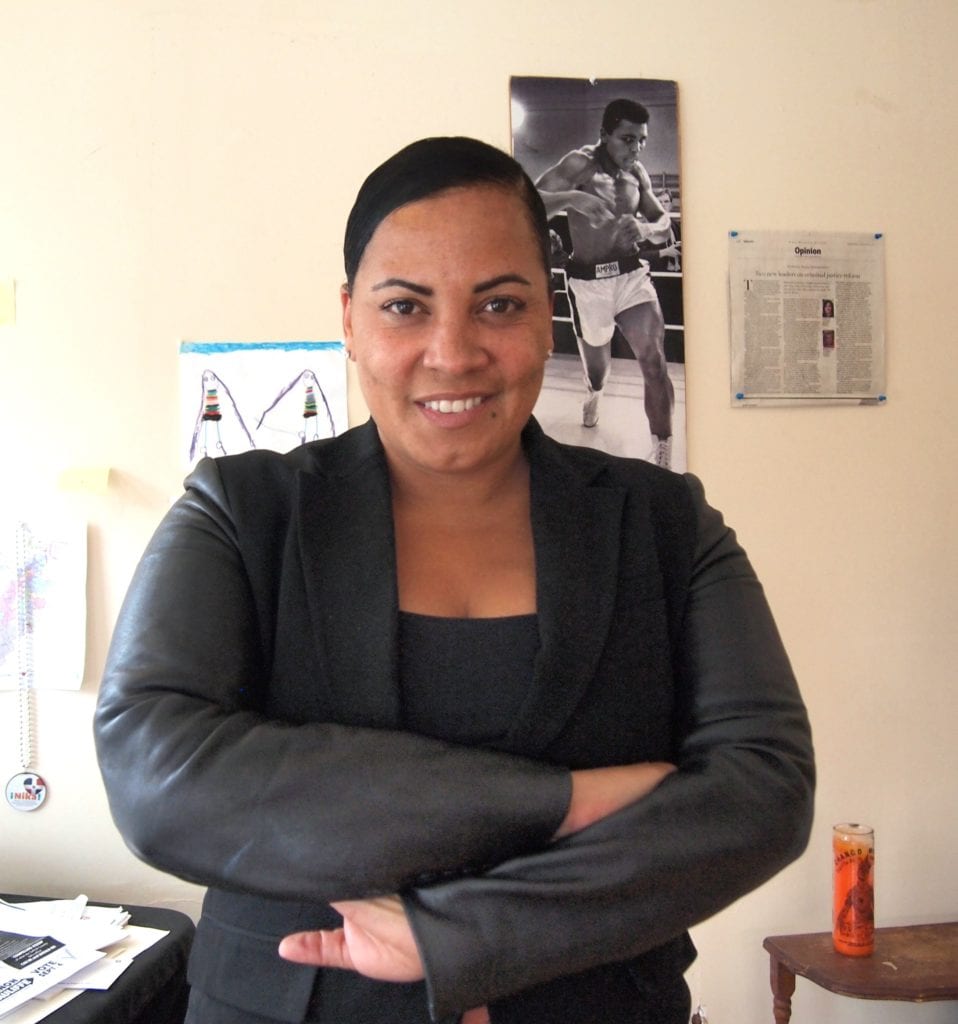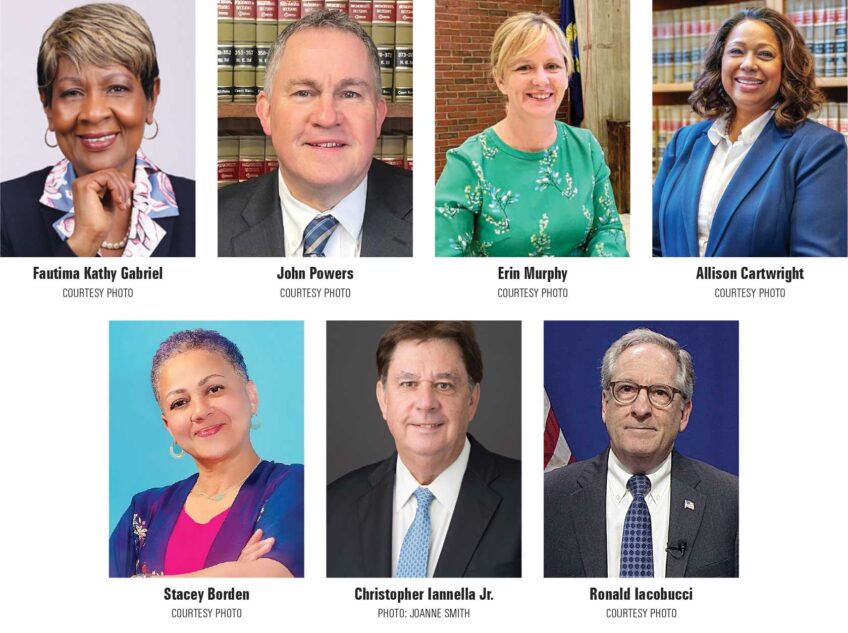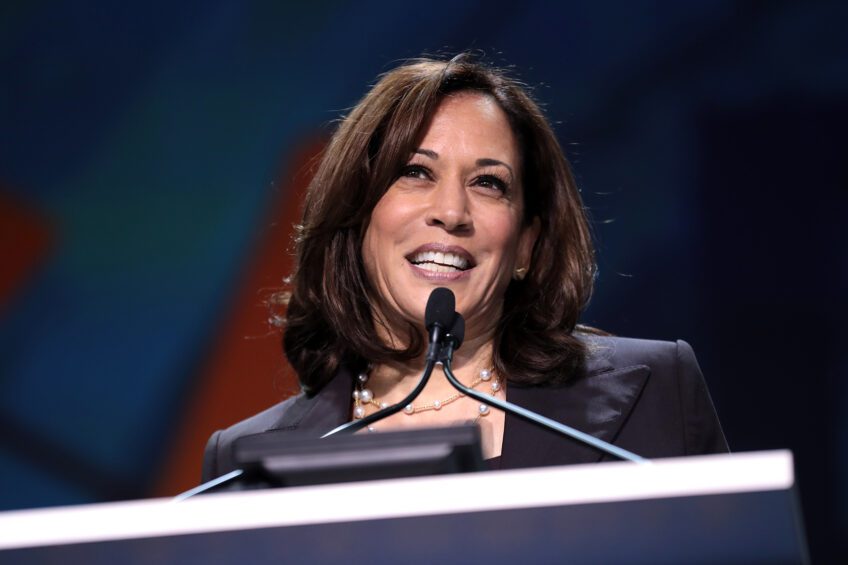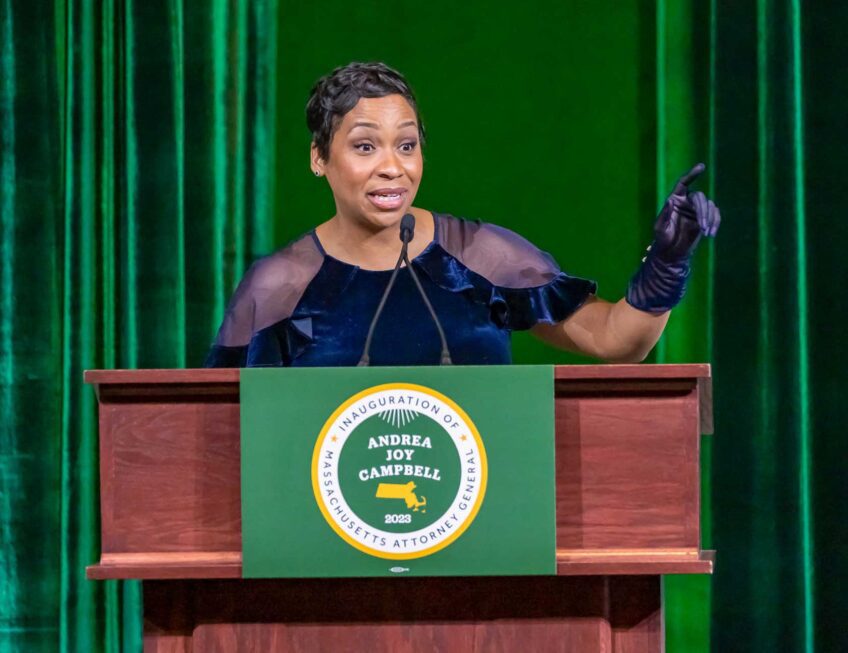Rollins won’t prosecute petty crime
Plan calls for focus on diversion, treatment rather than sentencing

Before Rachael Rollins prevailed in the Democratic primary for the Suffolk County district attorney’s office, her list of 15 crimes assistant district attorneys would not commonly prosecute gained scant notice in the news media.
But after the upset victory in which she garnered 39 percent of the vote in a five-way race, that list has drawn fire from police, conservative columnists and some defense attorneys.
Rollins’ plan calls for assistant district attorneys to decline to prosecute the charges unless there is a compelling reason to do so and a supervisor gives permission. The move is in line with a national trend in which reform-minded prosecutors such as Philadelphia District Attorney Larry Krasner are diverting resources from prosecutions of petty crimes to violent crimes.
“This is already happening all the time,” Rollins said of her proposed reforms. “It is the practice in a lot of courts that these cases aren’t prosecuted.”
Rollins said that in cases such as possession with intent to distribute, defendants could be referred to drug diversion programs rather than sentenced to jail time.
“I want us not to think of incarceration as the only tool,” she said.
In addition to police union officials, some public defenders have panned Rollins’ reform plan.
“It’s a recipe for disaster,” defense attorney Robert Griffin told the Boston Globe.
But many defense attorneys and police have a vested interest, criminal justice reform advocates say, in the continued prosecution of the crimes, which include trespassing, drug possession, disorderly conduct, minor in possession of alcohol and resisting arrest.
“Some police officers are making more money appearing in court and collecting overtime than they are in regular pay,” said public defender Ricardo Arroyo. “If you look at everyone who’s critiquing Rollins’s plan, everyone is making bank off these 15 charges.”
Police officers earn a minimum of 4.5 hours of overtime at time-and-a-half even if cases are delayed or dismissed, and public defenders in private practice are paid a flat rate for cases that are often dismissed or plead out, Arroyo notes.
The effects of over-charging
The current practice in Suffolk County is for assistant district attorneys to seek jail time or probation for the crimes on the list. Rollins and other reform candidates have spoken against prosecutors over-charging defendants — a practice that often compels them to plead guilty to a lesser charge in exchange for the more serious charges being dropped. The guilty plea, however, ensures that the defendant will have a criminal record.
For example, a police officer who apprehends a teenager caught with several small bags of marijuana could charge the youth with possession with intent to distribute, trespassing and disorderly conduct. A prosecutor could then offer to drop the possession with intent to distribute charge in exchange for the defendant pleading guilty to trespassing and disorderly conduct, which might result in probation or community service.
Under that scenario, the arresting officer would still make a court appearance, a criminal defense attorney would still be paid for representing the client and the prosecutor would be able to take credit for a conviction. In many district attorney’s offices, prosecutors’ conviction rates play a key role in their professional advancement. This system, critics say, incentivizes over-charging of suspects in a push to get convictions regardless of the societal costs of involving young adults and teens in the criminal justice system for minor offenses.
Rollins and other criminal justice reform advocates say the millions of dollars in overtime being paid to police and public defenders could instead be used to fund programs that prevent crime and drug treatment programs.
Rahsaan Hall, director of the Racial Justice Program at the ACLU of Massachusetts, agrees.
“Instead of prosecuting and using taxpayer dollars for a court date, we would be better served using those resources elsewhere,” Hall said. “There’s got to be a better alternative to bringing kids into the criminal justice system.”
The costs to defendants, who in Suffolk County are disproportionately black and Latino, is a criminal record that often bars defendants from finding work, obtaining housing or receiving federal grants and loans for college.
“What doesn’t get talked about, Hall said, “is when people are harassed by police and hit with these charges, it can in some cases push their lives over the edge.”
For immigrants, such charges can result in deportation, he added.
Rollins says diverting defendants in low-level crimes to drug treatment and other rehabilitative programs would be a better use of public resources.
“I want to focus my attention more on violent crimes,” she said. “I want to treat the DA’s office like CEOs look at their companies.”
Rollins says she plans to meet with the Committee for Public Counsel Services to discuss what cases are clogging the system and how best to allocate resources. She has also met with the Boston Police Patrolmen’s Association, Police Commissioner William Gross, Mayor Martin Walsh, the city managers of Chelsea and Revere and police chiefs of those cities.
“I want to start talking about what’s working and what’s not working,” she said.
Hall said Rollins’ victory in the Democratic primary signals a public appetite for sentencing reform.
“Her winning the Democratic primary speaks volumes about the electorate’s desire for change,” he said. “The issue of mass incarceration has been on people’s minds for several years. Rollins’ platform on the campaign trail was specifically about those reforms.”
Heightened interest
Last year, the ACLU launched a campaign titled “What a difference a DA makes” to highlight the importance of voting in races for district attorneys. This year, Suffolk County District Attorney Dan Conley announced he would not seek re-election. Rollins and four other candidates committed to varying degrees of reforms during the 18 debates that were held since April.
This year, 35 percent more ballots were cast in races for district attorney seats across the state. In addition to Rollins’ victory in the Suffolk County primary, reform candidate Andrea Harrington defeated incumbent Berkshire District Attorney Paul Caccaviello in a narrow victory.
“There are candidates who listen to what the voters want and candidates who don’t,” Rollins said. “The candidates who listen are winning.”
Ultimately, Rollins says, she wants prosecutors working under her to fully consider the social costs of prosecuting crimes and the impact of sending people to jail.
“Many prosecutors have never visited a prison,” she said. “They don’t know how long it takes for family members to drive to a prison, how disrespectfully people are treated. It’s important that we who have the power to take away people’s freedom … know what that feels like.”
By diverting resources from prosecuting petty crimes to treatment, diversion and rehabilitation, Rollins says, her office can put more emphasis on prosecuting and rehabilitating violent criminals who pose a danger to society.
“Ninety-five percent of these people return back to us,” she said. “I want them to be less violent, more capable of dealing with their emotions and better able to re-enter society. That would be a win for Suffolk County.”







